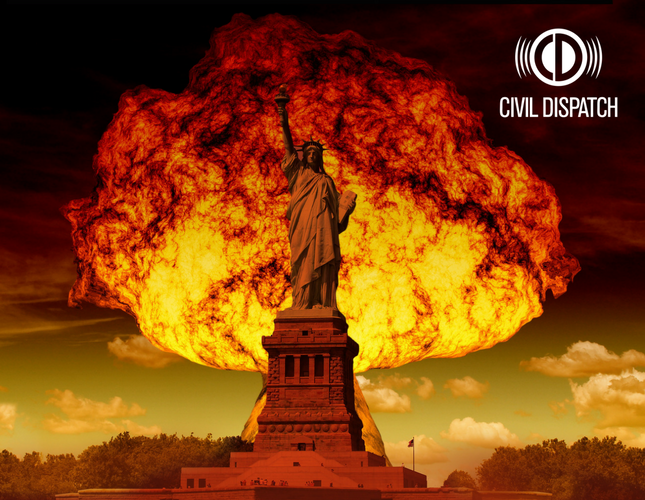
With recent events, many are wondering whether we could have a nuclear attack in the near future; and, if so, how do we handle it? Even more importantly, how do we survive it? The point of this blog is not to instill fear into our readers, but to instill a desire to survive. It doesn’t pay to panic, it pays to be prepared.
When a nuclear bomb goes off, the area surrounding what they call the blast zone is scorched and hit with a blinding flash of light and heat. The pressure from the wave can flatten buildings and anything that is in its way and a large radius will be instantly contaminated with radiation. On the bright side, nuclear attacks don’t always mean immediate death. Nuclear attacks have been survived in the past like Hiroshima in 1945. Twice as many survived the initial blast than died, but that doesn’t mean there wasn’t a fallout for years to come.
Here are some tips for having the best chance of surviving a nuclear attack:
Before The Blast Hits
Even if the attack is anticipated for months before it happened or if you only had a moment’s notice, being prepared is the key. Have the essentials ready such as non-perishable food items, sealed water, flashlights, and a well-packed first aid kit. The supplies you have prepared should last you a minimum of two weeks. It’s a good idea to invest in a hand crank radio so you can get news and alerts. Pack a change of clothes for you and your family if your clothes get contaminated with radiation.
Where To Hide From The Blast
There are three essential things that need to happen when you are hiding from the blast: distance, shielding, and timing. The more distance that you have between you and the blast zone, the safer you will be and the higher your chance of survival. You should be looking for underground places such as basements or official blast shelters that are designed for situations like these. Buildings that are made from concrete or brick are your best bet for blocking out radiation. Once you find your shelter, give yourself time after the attack before you head out of your shelter. The first two weeks are the worst and the most deadly for radiation levels.
What To Do During The Nuclear Blast
When you know the blast is real and you are in imminent danger, seek shelter immediately. Stay on alert for any official communications from authorities and don’t evacuate unless you are told to do so. If you find yourself outside during the blast, lie down flat on the ground and don’t look at the blast - it could blind you. Once the blast is over, find a safe place, scrub yourself clean with soap and water, and put your clothes in a sealed bag. Radiation dust can travel for hundreds of miles.
What To Do After The Blast
Most people that aren’t near the blast site will be able to leave their shelters within days of the attack, if authorities say it is safe. Areas that are affected with the brunt of the blast could stay quarantined for up to a month. If you did evacuate and you plan to return home, listen to the news and radio broadcasts for places to avoid. If it’s necessary and available, seek medical help.
We all hope that we will never need any of this information, but it’s always better to be safe than sorry. If you haven’t already signed up for alerts from Civil Dispatch, click here to receive text messages when there are threats or severe weather in your area.